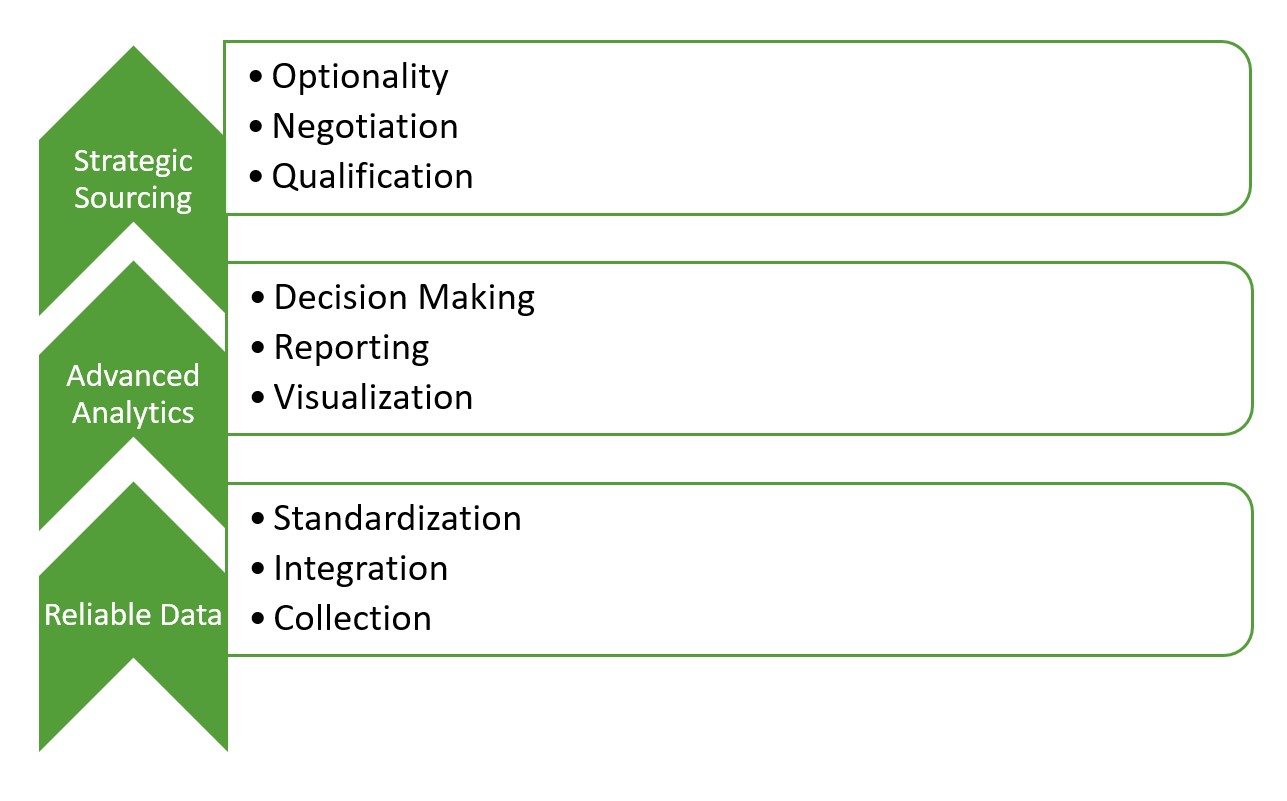Energy Procurement Services
Get ahead of the game in understanding the energy markets, exposure to energy commodity prices, and the available options to better manage cost and risks.

Procurement Strategy
Our experts have more than 25 years in the energy markets with a deep understanding of the underlying market fundamentals, industrial energy processes, and energy technologies. We understand the organized energy markets, rules and regulations and possess relationships with all major retail suppliers of power and gas.

Energy Purchasing
We have extensive operational knowledge of industrial, manufacturing, and other energy-intense, process-oriented industries that inform our energy procurement and energy management approaches. Based on sound principles, our procurement strategies and price risk management approaches use a disciplined and structured approach to reduce risk and cost.

Sustainability Solutions
Get insight into your options: We keep an eye on ESG goals and objectives, decarbonization options, and energy efficiency opportunities that will improve our environment and societal well-being, while giving you the strongest ROI.

Risk Management
With visibility into your own and your suppliers’ challenges, you gain insight into your risks downstream and upstream. We assess and develop strategies for managing risks from cyber attacks, sole sourcing, compliance issues, blackouts, price spikes or drops, and imbalances in supply and demand.
Energy prices are rising. Renewable power generation, with its intermittency and lack of dispatch capability, will continue to impact grid conditions and reliability for consumers, leading many to consider self-generation and distributed energy options.
Geopolitical events, aging infrastructure, and more rigorous environmental policies are escalating volatility. In selecting and purchasing energy, you need to:
- Analyze your energy spend and ways to control costs.
- Negotiate from the strongest possible position.
- Ensure performance aligns with what was contracted.
- Invest in technologies and equipment that promote efficient energy use with low carbon emissions.
What are the energy procurement challenges that you face?
-1.png?width=333&height=221&name=ig-3(1)-1.png)
Lack of data
-1.png?width=416&height=250&name=ig-2(2)-1.png)
Unproven technology

Inefficient Energy Use

Incompatible Systems

Poor Negotiations
.png?width=541&height=227&name=tt(1).png)
Poor Market Intelligence
Strategies to Manage Energy Use and Costs

The industrial manufacturing and nonmanufacturing industries together account for a third of all energy use, with chemicals, petroleum refining, forest products, food and beverages, and iron and steel ranking as the top 5. All these industries and more need to implement analytical, negotiating, and monitoring strategies to manage energy consumption and costs.
Analyze: Advanced data analytics reveals exactly how energy is being used and where; trustworthy data must underpin any attempt to control energy use and costs and avoids unintended consequences. For example, equipment is often shut down or powered down between shifts to save energy; but startup surges and productivity losses may counteract any savings in energy use. Aging equipment is often kept onboard to avoid capital expenditures; but it uses more energy requires more downtown, so the savings may be eaten up by higher energy costs and lower productivity. You need to know which facilities, processes, and systems in your company need and consume energy, how much, and why.
Negotiate: Once reliable, consistent data is in hand, you are in a stronger negotiating position with energy suppliers—and with energy users within your company. Monitoring and evaluating energy use requires technologies, skills, and incentives for compliance. If you lack any of the three, your energy consumption will be less than optimum and your consumption may far exceed each user’s actual needs.
Monitor: A mature procurement department will monitor suppliers to make sure you are getting what you pay for; keep track of market fundamentals; and reduce risk through such strategies as optionality and supplier scorecards. You may be able to regenerate power and sell it back to utilities; invest in monitoring technologies that optimize power consumption and minimize carbon emissions; and predict future needs and opportunities for savings by modeling past performance.
